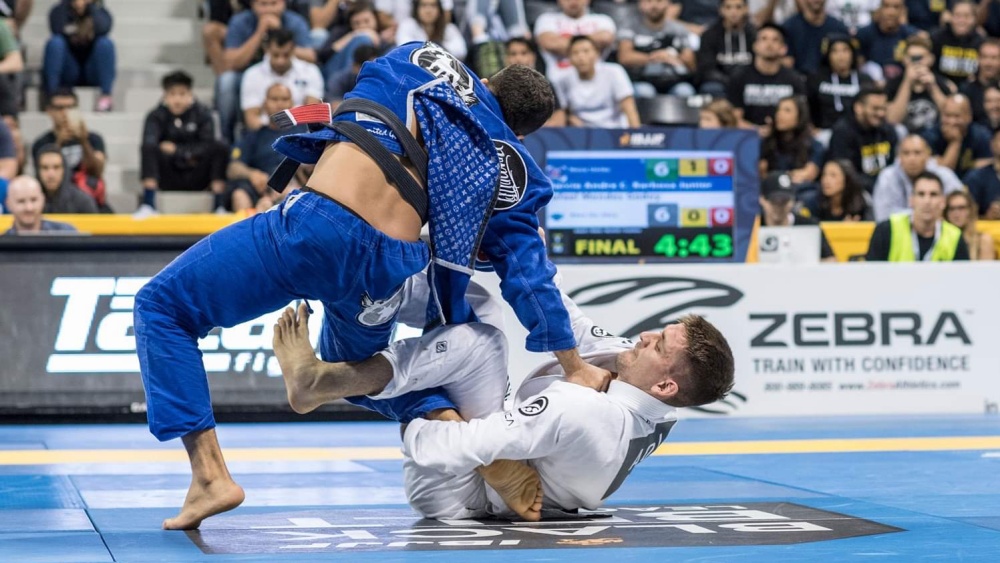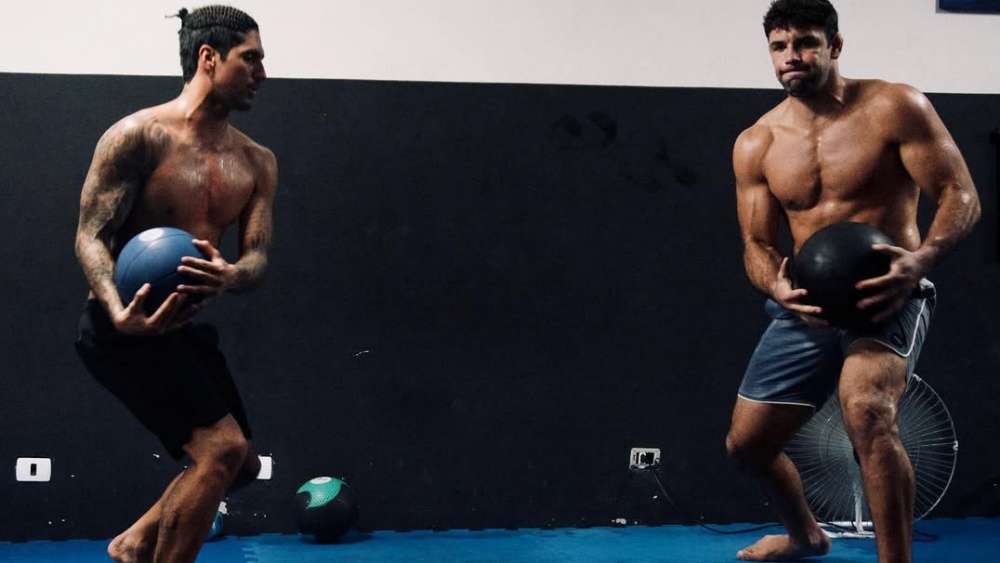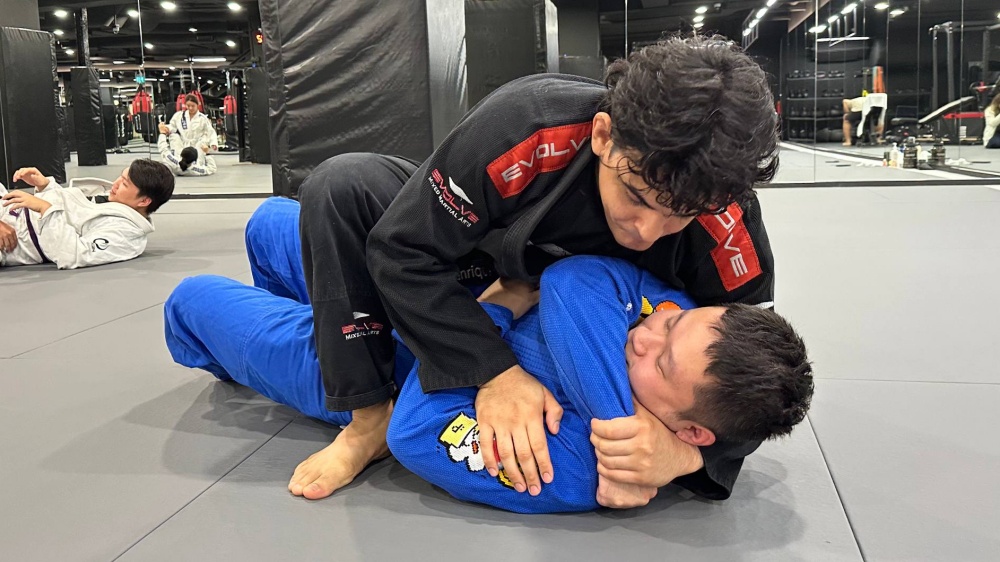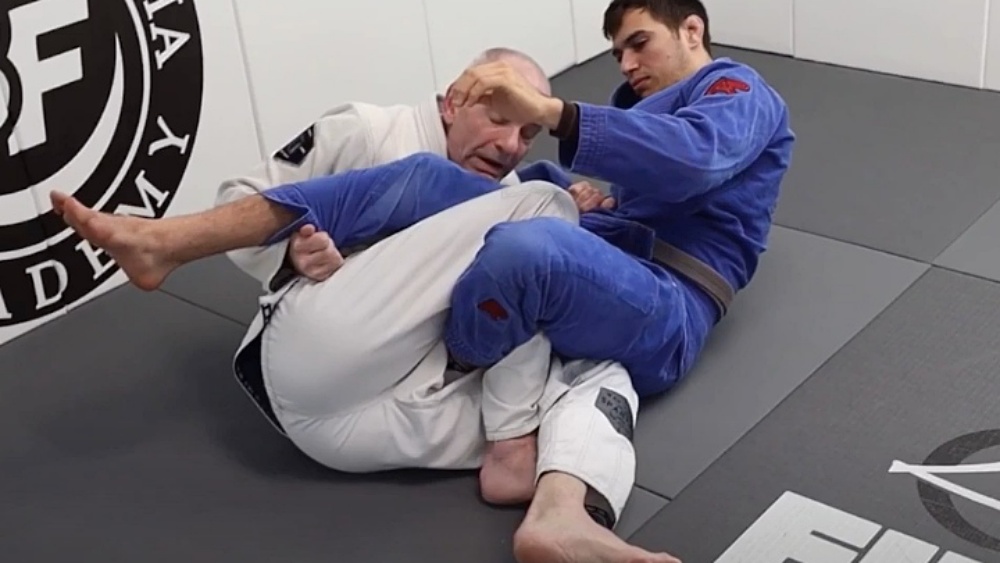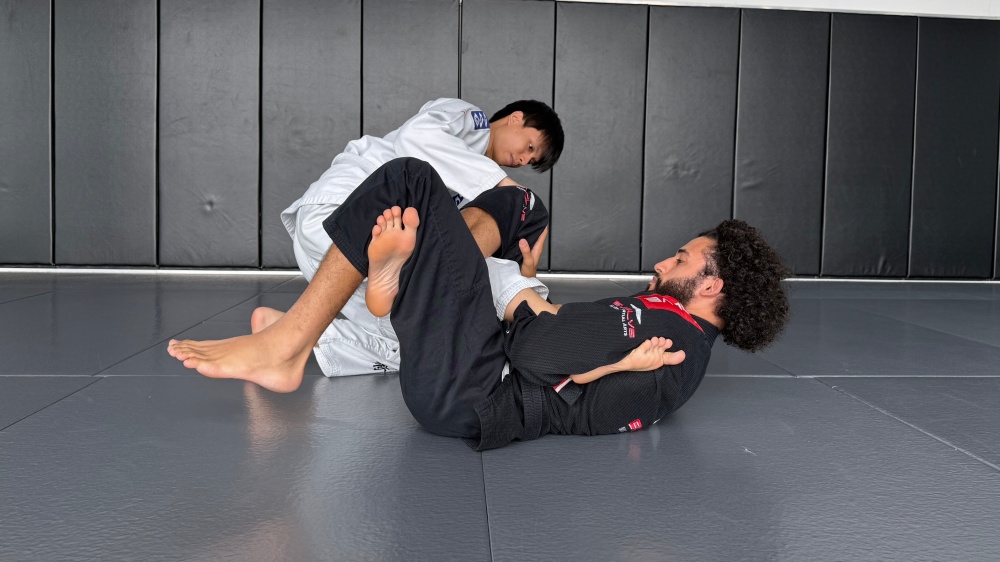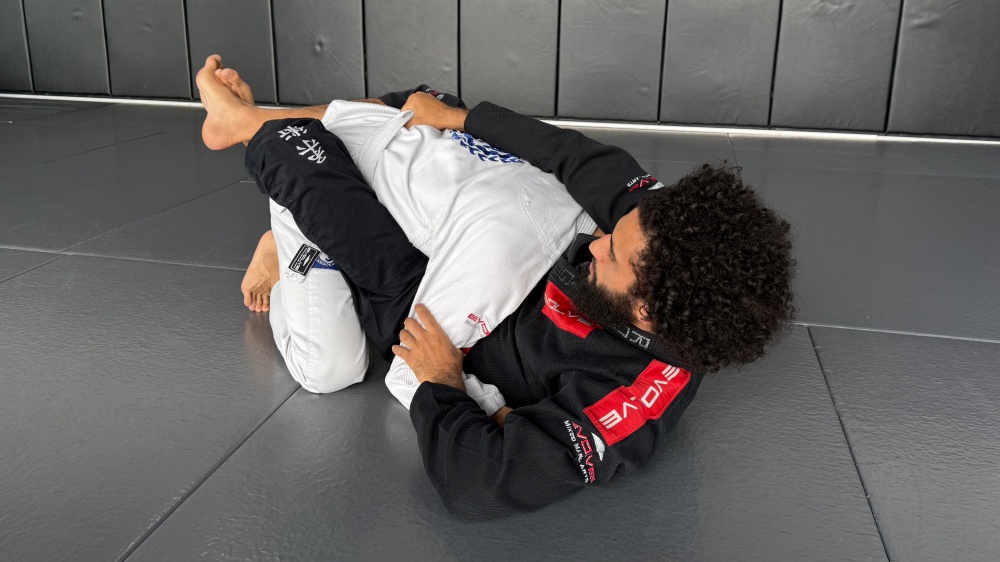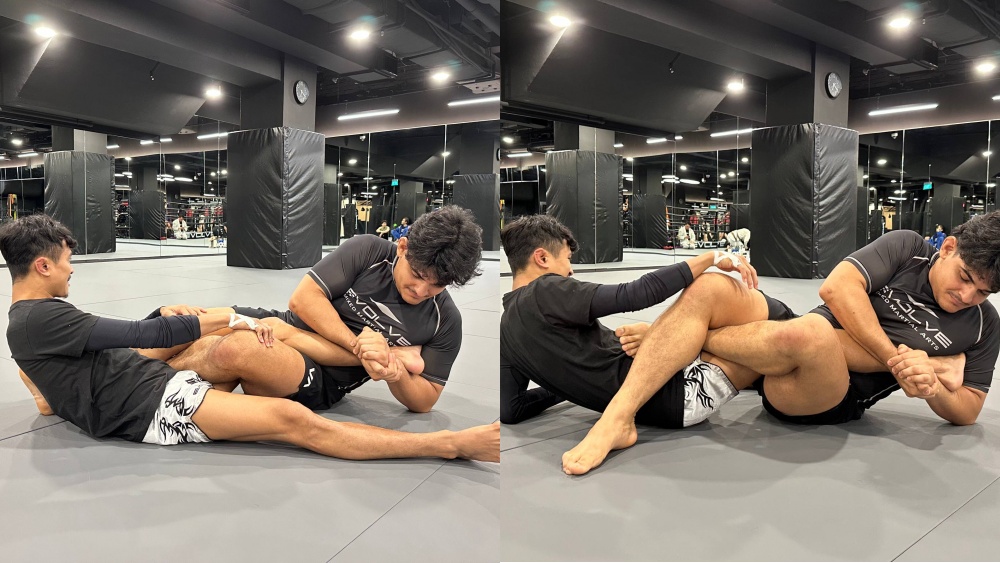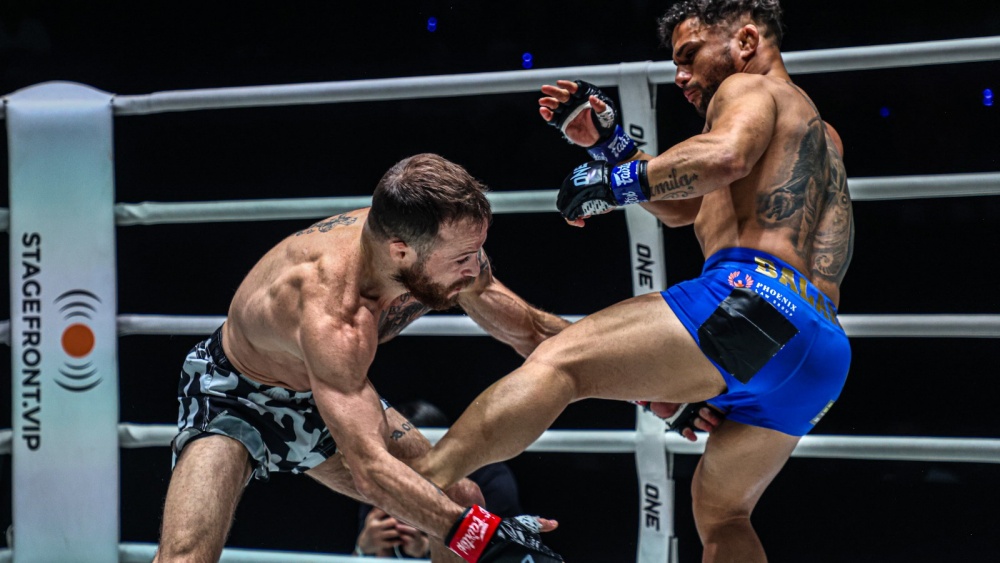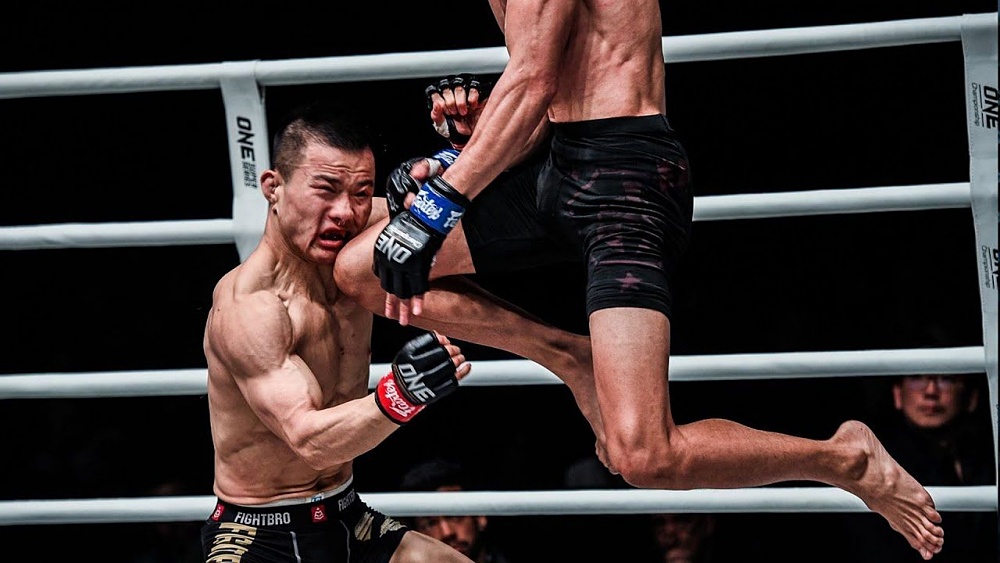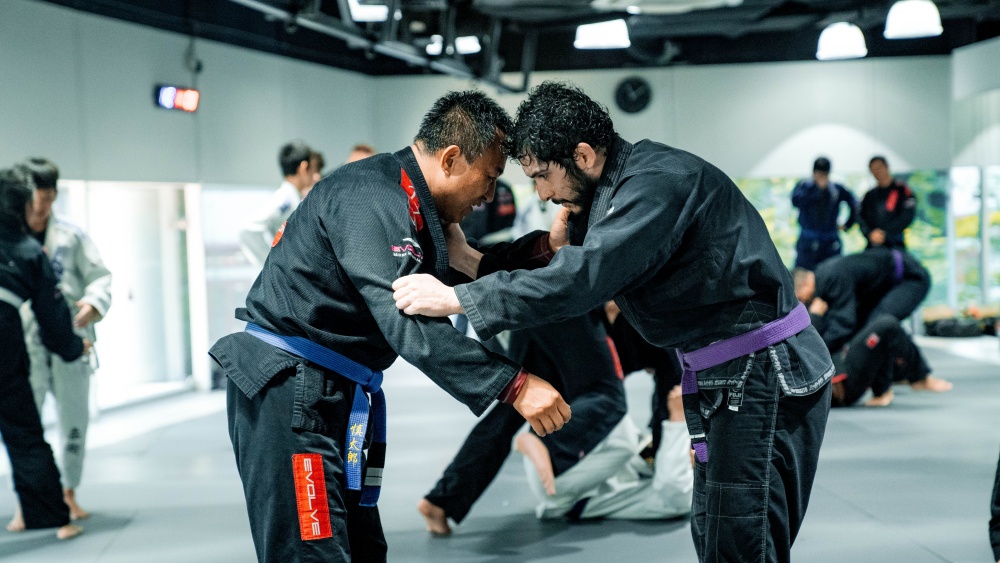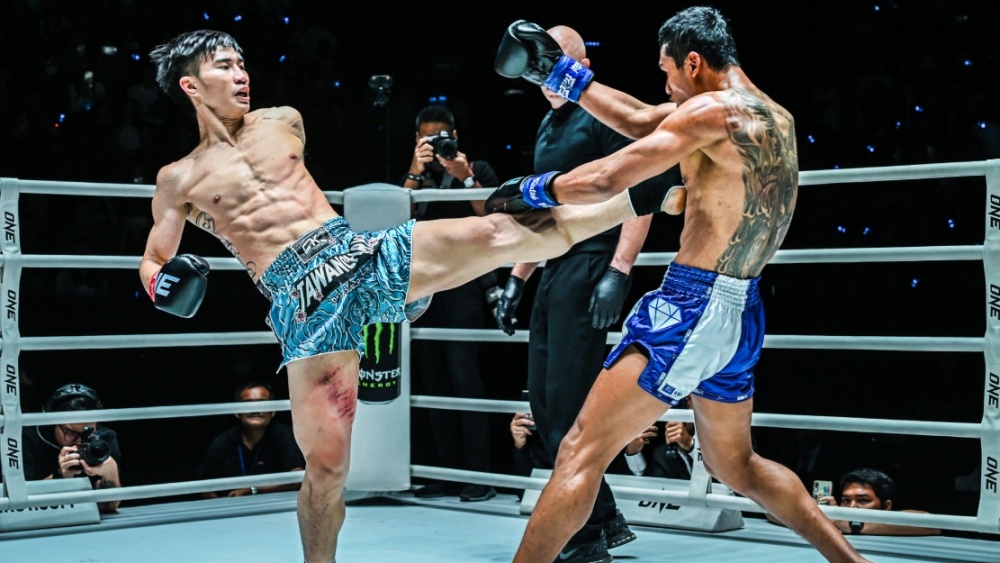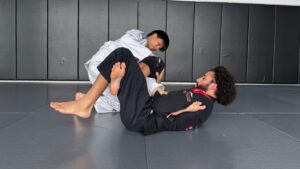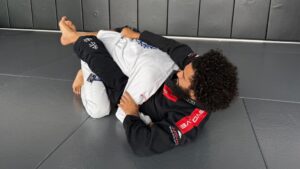Brazilian Jiu-Jitsu is a martial art known for its heavy emphasis on offensive and defensive ground-based techniques. There are specific moves in BJJ that make it unique, even compared to its contemporaries like Judo and Sambo.
While most techniques in BJJ are still heavily influenced by Judo, some of the newer attacking options are deeply focused on their applicability in the sport-specific context. Today, we will talk about the berimbolo, a powerful technique specific to BJJ. It is a move that will help you become a more dynamic force on the grappling mats.
What Is The Berimbolo?
The berimbolo is a technique derived from the de la Riva guard. It is performed by the guard player to take the opponent’s back, typically by using inverting and spinning movements. By spinning, the guard player will be able to take the back of the opponent. Alternatively, you can also sweep an opponent using this motion, known as the helicopter.
It is debatable who invented this technique. Some claim that the father of the berimbolo is Marcel Ferreira. The story goes that he discovered and showcased the move around the 1990s. Others believe it was Samuel Braga who founded the technique during his black belt debut in 2005. He even claimed that he developed the technique during his days as a colored belt. Ultimately, it was Andre Galvao who named the technique berimbolo, which means ‘scramble’ in Brazilian Portuguese.
From the time the berimbolo entered the spotlight in the early 2000s, the technique has been in a constant state of development and is used in the highest levels of competition. This is especially the case for grapplers from the lower weight classes. The Mendes brothers, Rafael and Guilherme, were the ones who started the trend in the modern era of grappling around 2010, followed by the Miyao brothers, Paulo and Joao, during their break-out years in 2011-2012. It was then adopted by modern BJJ stars like Gianni Grippo, Mickey Musumeci, and more recent fighters.
When To Use The Berimbolo?
The berimbolo is a technique generally used by the bottom player. Many BJJ fighters have developed combinations that include the berimbolo, such as the de la Riva guard to berimbolo. Modern grapplers now understand the importance of rolling with the berimbolo to defend against it. You can also use submissions such as leg locks to effectively swing the offense to your favor.
There are two ways to enter the berimbolo: the first is to apply the de la Riva guard from the double guard pull or seated guard position, and the second is when the opponent is doing a standing guard pass, which means you have to first sweep them. Both ways have the same goal: to take the opponent’s back.
In this video, Samuel Braga, widely known as the first BJJ black belt to use the berimbolo in a competition, shows the essential details of the move. According to Samuel, the berimbolo started because of the double guard pull position. This was because most rooster weights then always resort to pulling guard.
All of his opponents were highly technical and efficient with their guards, and Samuel found it difficult to get the top position. Hence, he concluded that the berimbolo can be used as an excellent tool to bypass passing from the top position and go straight to the back.
How To Perform The Berimbolo?
Watch the video demonstration by BJJ black belt, Almiro Barros from the Evolve Fight Team as he shows an easy and safe way to perform the berimbolo from de la Riva without hurting your neck. This is very important as some practitioners stray away from the berimbolo because they are afraid of getting hurt. A simple prerequisite to performing the berimbolo is that you must be able to bring your knee to your chest.
There are two ways an opponent will approach. The first approach is when the opponent’s upper body is forward, and second is when the opponent is posturing up, similar to a deadlift position with his arms upright. If an opponent is top dominant and uses their weight on the upper body, it is often recommended to make the opponent place more of their weight on the upper body.
To do this, you must apply a cross collar grip with the de la Riva guard and manipulate the opponent’s spine in one direction, transferring the weight to the upper body, which makes the legs lighter.
There are different variations of the berimbolo depending on the opponent’s reaction. The variation shown in the video is forcing the opponent to stack their weight on his upper body by using the cross collar grip. This causes the arm to post on the mat as a reaction, leaving the legs relatively lighter. When the opponent posts their hands on the mat, attack the legs and flip them on top. This will force the opponent to land with a posting arm, giving you time to hook one foot up to the hips while the other leg pushes. Lifting the opponent’s body is easier when the weight distribution is compromised. Lastly, pull the opponent with your shins and take the back to finish.
Conclusion
A critical detail of the berimbolo is to shoot and hook both your top and bottom foot all the way to the opponent’s hips. Doing this will increase the chances of turning the opponent’s body around as you roll to take the back. The hooks, therefore, are one of the central components of the technique.
As much as the berimbolo is useful in grappling competitions, not all high-profile grapplers add it to their game. ADCC Champion Kron Gracie is not fond of the berimbolo and even stated it is “a mess” of a move. Still, we can’t deny the effectiveness of the technique. It has proven its worth in the highest level of sport BJJ. The berimbolo may not be a tool that many may consider in self-defense and MMA situations, but it is still a valuable addition to your sport-specific BJJ game.
You may also like:
